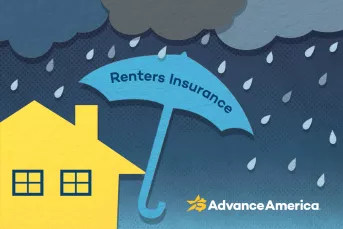

Survey Finds Americans Are Financially Fit but Still Struggling to Save
You’re not the only one making smart money moves and still feeling stretched. Advance America’s April snapshot of financial health reveals a surprising truth:
Many Americans are financially fit on paper. They track spending. They use coupons. They avoid debt.
But in today’s economy, even strong budgets can feel like they’re not enough.
How fit are your finances?
As part of April’s Advance Your Finances challenge, we asked folks about their money habits to gain insight into their financial health. Based on their responses, we grouped people into three relatable categories:
- Financially ripped: Look at you flexing those money muscles! You’ve got savings, a plan, and feel confident managing your budget. 💪
- Financially toned: You’re on the right track, but there’s room in your routine for improvement. 🏃
- Work in progress: Your finances could use a serious workout — but hey, couldn’t we all? 😅
These personas help highlight the different ways people experience financial wellness and how common it is to feel off track . . . even when you’re doing your best.
Americans are financially literate
When we looked at the results, it was clear: most people are making smart money moves to stay in control, even when the odds feel stacked.
Here’s what stood out:
Keeping an eye on finances

86% of respondents said they review their spending regularly to find areas to cut back. That’s a smart habit, and one of the best ways to stay in control.
Fit tip: Check your bank statements, review your credit report, and re-evaluate your automatic subscriptions regularly.
Using discount codes and coupons

88% said they look for deals while shopping, comparing prices and using promo codes.
Fit tip: Add an automatic coupon finder like PayPal Honey or Capital One Shopping to your browser so you never miss a deal.
Spending credit wisely

61% said they only charge what they can afford to pay off in full each month.
Fit tip: Set up payment reminders or autopay for your credit cards to avoid missed payments and costly late fees.
Budgeting and saving still a struggle
We’re all making the effort, but it’s not always enough — and many of us are struggling to pay everyday expenses.
In our April snapshot, 1 in 4 people said they didn’t have enough money on hand to cover their rent, mortgage, or other essential bills. And 75% said they don’t have an emergency fund set aside to cover basic living expenses for three months.
The reality: Budgeting apps and spreadsheets can only go so far when prices keep rising faster than paychecks. That’s not a personal failure — it’s a sign of the times.
Rent and household costs remain high
Housing continues to be one of the biggest financial pressures. Even with careful budgeting nearly 1 in 4 people said they don’t have enough money to cover rent or mortgage payments without sacrificing other necessities.
Fit tip: A common guideline is to keep housing costs under 30% of your income. If your rent or mortgage payment has crept past that, it might be worth exploring ways to adjust — whether that’s negotiating/refinancing, budgeting differently, or considering a move.
Emergency funds fall short
Only about 25% of respondents said they have enough saved to cover three months of basic expenses if they suddenly lose their income. Not having an emergency fund makes it harder to handle the unexpected without falling behind.
Fit tip: Start small. Automate a weekly transfer or $10 or $20 into a dedicated savings account.
Saving for the future feels out of reach
Long-term goals like retirement or homeownership often take a backseat when everyday costs come first. Most of us are doing our best to save, but it’s tough to plan when you’re just trying to stay afloat.
Fit tip: Break big goals into small steps. Saving $25 per paycheck may not feel like much now, but it builds momentum — and that’s what keeps goals from stalling out.
Financial strength looks different for everyone
You might be doing everything “right” and still feel stretched. Whatever your financial fitness level, what matters is that you’re showing up and taking steps that work for you. And we’re here to walk that path with you.
Methodology
The financial health quiz is an ongoing, nationwide initiative conducted by Advance America to assess how Americans manage their financial well-being. Responses were collected through an interactive, quiz-style survey hosted on AdvanceAmerica.net. The quiz was promoted organically via the website and other owned channels.
Participation in the survey was voluntary. As an incentive, respondents were offered the opportunity to enter a drawing for a cash prize upon completion of the quiz.
This report highlights a subset of responses collected between April 1 and April 30, 2025, during which time 17,466 U.S. adults aged 18 and older completed the survey. All data was self-reported and is intended to reflect a snapshot of financial health perceptions during the specified timeframe.
Notice: Information provided in this article is for informational purposes only. Consult your attorney or financial advisor about your financial circumstances.


